What Happened to J. Lo’s Movie Career?
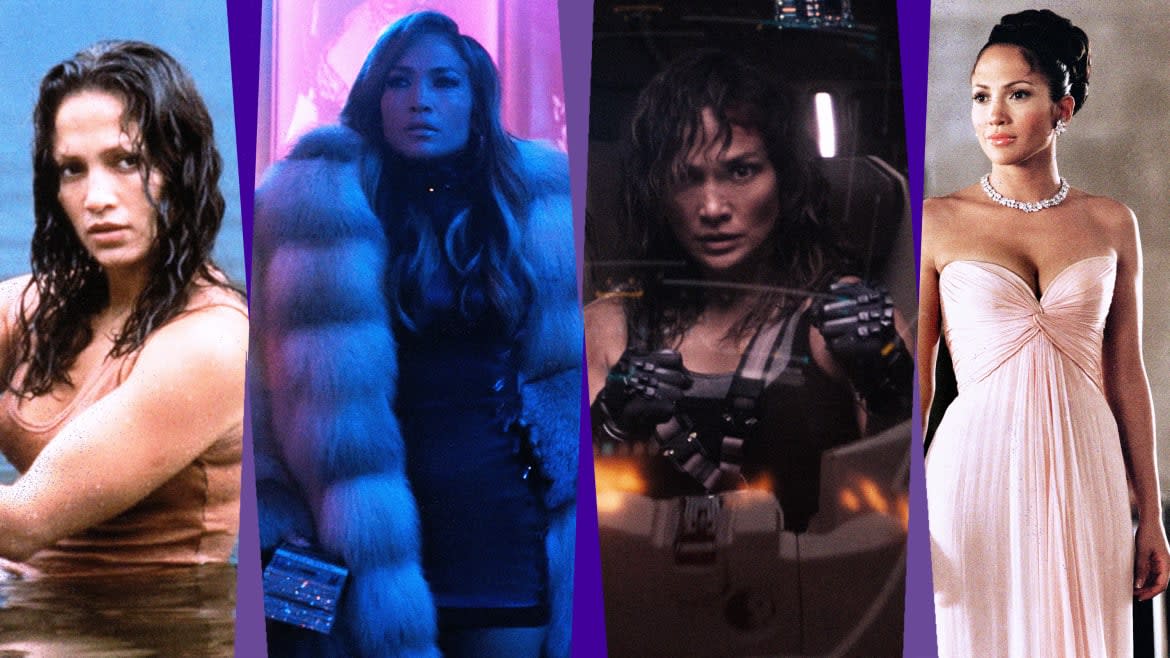
When did you first fall in love with Jennifer Lopez on screen? Maybe she charmed you while stealing Natasha Richardson’s clothes to flirt with Ralph Fiennes in Maid in Manhattan, or maybe she impressed the hell out of you while she was battling (and eventually blowing up) a ridiculously large snake in Anaconda. Or perhaps you didn’t climb aboard the JLo movie train until later on, when she danced her ass off as the maternal, charismatic, deliciously corrupt crime boss Ramona in Hustlers. The genius behind each of these performances was that with each role, Lopez was not just telling her character’s story but also her own.
It’s not uncommon for viewers to identify actors with their roles, and most of the time, this kind of parasocial interpretation is ill-advised. But look closely at Lopez’s on-screen oeuvre, and it becomes difficult to ignore certain patterns—themes that she loves to act out over and over and over again. For years, “Jenny from the Block” rom-com characters were scrappy women of a certain social class who managed to woo certain elite men seen by others as “above” them. (See: The Wedding Planner, Maid in Manhattan, and Monster in Law.) Her action characters are tough enough to wrangle snakes. And her dramatic characters—like her breakout role, Selena, and her Hustlers anti-hero Ramona—are tireless underdogs who lead with their hearts while also chasing the American dream.
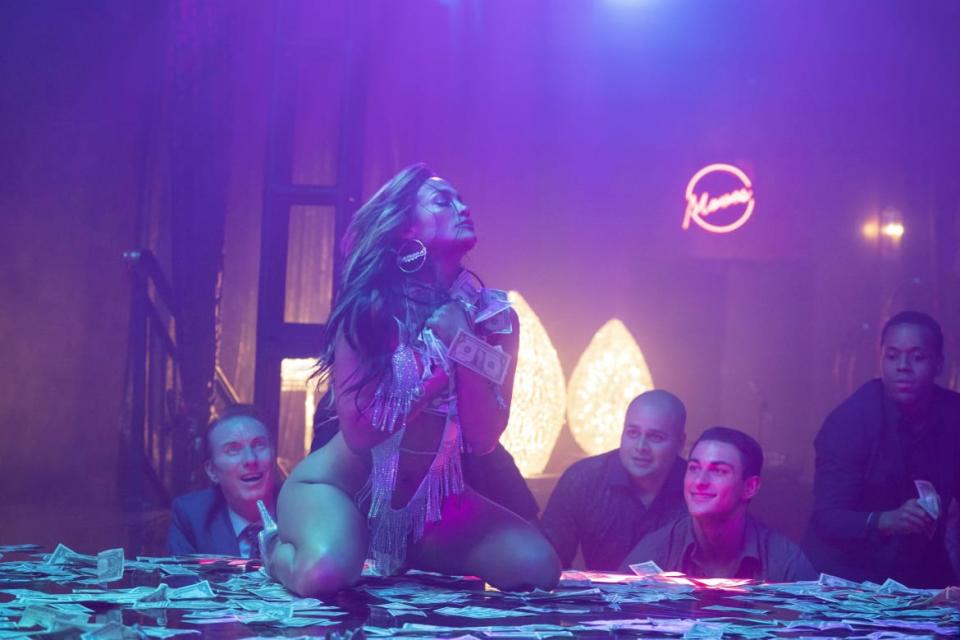
In other words, Lopez’s movies have long established that she’s Not Like Other Girls—she’s JLo, a smart, savvy woman who came from humble beginnings and conquered the world. Sure, she occasionally gets seduced by a teenager or plays a corrupt cop, but even in those roles, the theme is that she is a good, likable person caught up in something untoward. In movies like Enough (2002), she’s downright fierce. Lately, however, her formula has started to crack. Is it just me, or are JLo movies just not hitting like they used to?
It’s not just Atlas, which is already a monumental flop. Earlier this year, Lopez released her self-funded visual album This Is Me… Now, an absolutely bonkers testament to its creator’s undying belief that love conquers all. It’s not every day you see a global popstar upstaged by a heart machine that runs on red flower petals, but that’s exactly what that hallucinogenic, steampunk spectacular delivered.
Unlike most of her on-screen efforts, Lopez co-wrote her visual album, which preceded the making-of documentary that soon followed. By taking her brand directly into her own hands, Lopez did her image more harm than good. Comparisons to Beyoncé’s far more capable visual album Lemonade were not exactly flattering. The end result mostly felt like a testament to Lopez’s undying love for her husband Ben Affleck, which is unfortunate given the reported relationship decay that’s followed the project’s release.
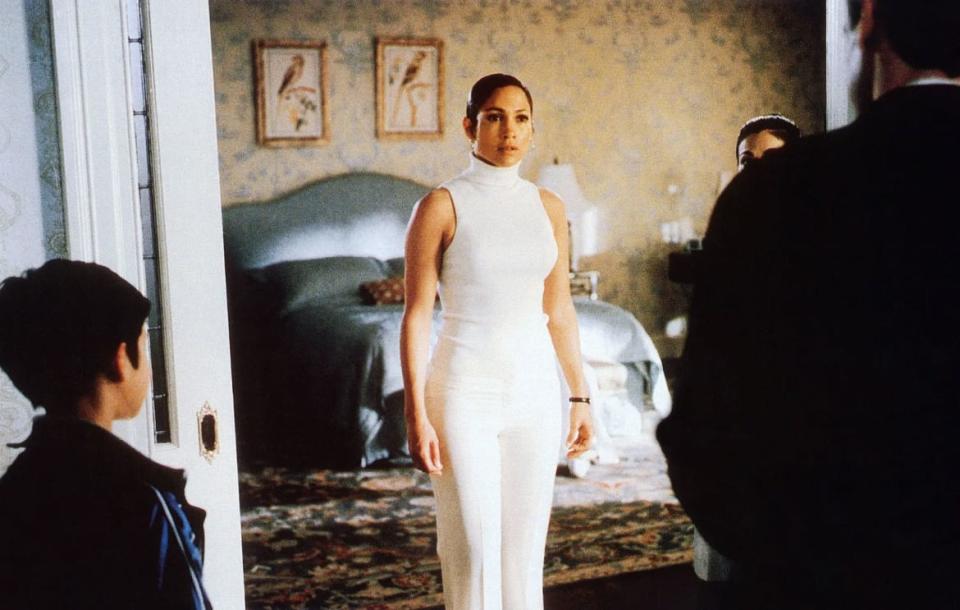
Jennifer Lopez in Maid in Manhattan
Culturally, Lopez’s wheelhouse has traditionally been “slightly goofy and not always in on the joke.” To claim that her This Is Me… Now era squanders some kind of gravitas would be as laughable as, say, a movie in which a 19-year-old woos his teacher by giving her a “first edition” copy of the Iliad. It would also perhaps be unfair to point out that in terms of box office, her performance has plummeted. (Marry Me grossed $50.5 million worldwide on a $23 million budget—which isn’t bad but also pales next to, say, Maid in Manhattan’s $154.9 million haul on a $55 million budget, or Anaconda’s $136.9 million take on the back of a $16.6 million budget, or even The Boy Next Door’s $52.4 million return on a $4 million budget.) As stark a tale as the numbers might tell, they also reflect a broader trend at the box office, where any movie that does not fall under the tentpole of pre-existing superhero IP tends to struggle for attention. Also, Marry Me released on Peacock on the same day it debuted in theaters, so its box office doesn’t tell the full story. Still, for the past few years, Lopez’s stock has seemed to drop dramatically.
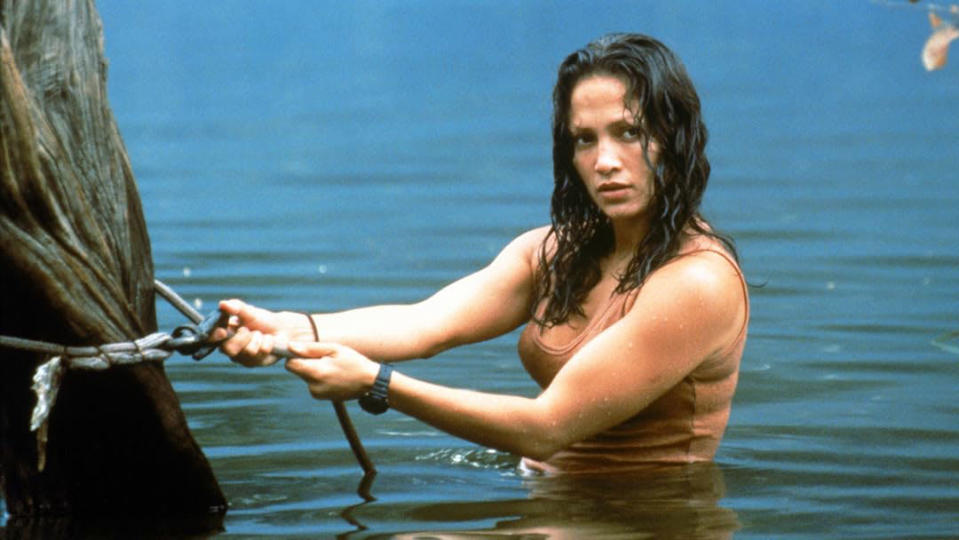
In terms of prestige, 2019’s Hustlers marked a critical high point for Lopez not seen since, perhaps, Selena. As Ramona, she was in full “JLo” mode—spiky, empathetic, infallibly likable. Director Lorene Scafaria knew exactly how to leverage her star’s public image to her film’s benefit; we were all putty in her hands, like Constance Wu’s novice dancer Destiny wrapping herself in Ramona’s billowing fur coat. Ever since that dazzling performance, however, the cracks in Lopez’s on-screen have started to show.
First, there was 2022’s Marry Me—a mediocre but passable romp that marketed itself by declaring Lopez the “Queen of the Rom-Com.” Did JLo, who produced the film, crown herself with that superlative? Probably! And that’s why we love her. Like most of her projects, Marry Me entwines itself with Lopez’s personal brand—she plays a pop star whose messy love life has unfolded before the public’s eyes. At the same time, it abandons the fighter quality that’s made Lopez’s previous genre endeavors so appealing. (Yes, I’m counting Monster in Law, which critics unfairly maligned in its time, as an example of Lopez’s golden age—rewatch it now with fresh eyes and cope with being wrong!)
J. Lo’s AI Sci-Fi Flick Is One of the Year’s Biggest Misfires
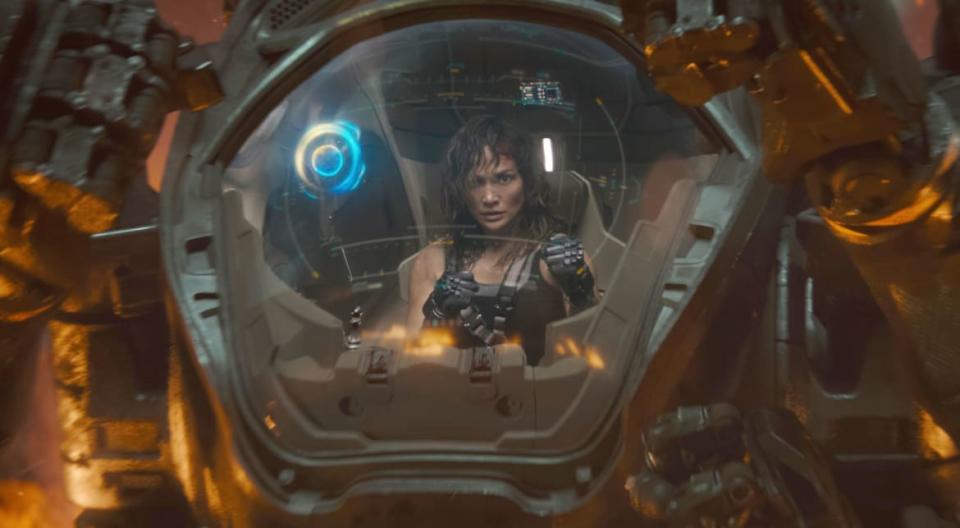
Like most decent-but-not-great movies in our streaming era, Marry Me has already fallen out of the public memory and will likely never be talked about again. We came, we saw the set pieces stolen from other rom-com hits, and we promptly forgot about it. The deliriously wild pirate movie Shotgun Wedding, meanwhile, probably would have been a hit summer blockbuster if it had not been a streaming release somewhat overshadowed by the, erm, Allegations™ against its original leading man, Armie Hammer. The film was a perfect marriage of Lopez’s greatest talents—light, bubbly comedy and action-packed sarcasm. As my colleague Coleman Spilde pointed out in his review, it takes a special kind of actress to convincingly deliver lines like, “So, what, this grenade is just part of my life now?” Lopez is just that person. Last year’s The Mother was similar—a solid film that would have benefited from a theatrical release and has since already been forgotten.
As meh as these films might’ve been, it was This Is Me… Now that showcased Lopez’s absolute hubris, and now, Atlas has delivered another embarrassment when our ambitious queen could’ve really used a win. If there’s one thing we’ve learned about JLo, it’s that you should never underestimate her—especially when she’s down. Still, it’s going to take a lot of red flower petals to fuel this comeback.
Get the Daily Beast's biggest scoops and scandals delivered right to your inbox. Sign up now.
Stay informed and gain unlimited access to the Daily Beast's unmatched reporting. Subscribe now.

 Yahoo News
Yahoo News 